Key points:
- A new low-cost boarding school is giving more students access to education in the communities surrounding United Methodist Dindi Mission.
- Many students had been rising before dawn to trek long distances to reach the mission’s schools.
- The new facility, supported by church members, educators, parents and local leaders, is helping address high dropout rates and other challenges.
In the remote, mining-scarred heartlands of Zimbabwe’s Pfungwe District, access to education is no longer a privilege but a possibility, thanks to Dindi Mission.
Until recently, students from far-flung villages like Kanzire, Dewe and Museka would rise before dawn, trekking up to 28 kilometers (17 miles) through harsh terrain just to reach the United Methodist mission school.
Some began their days as early as 3 a.m., arriving at school after lessons had already begun — tired, hungry and struggling to keep up.
Now, a low-cost boarding school at Dindi is reshaping that reality. Supported by committed educators, parents, church members and local leaders, the initiative is transforming not just academic prospects, but lives.
Established in 1938 by a Methodist missionary, the Dindi Mission area has grown significantly over the years. It now includes a primary school, a high school, a health clinic and local church. The boarding facility, which opened in 2024, is the latest development.
The housing option offers safety, structure, mentorship and spiritual guidance that help shield children from early marriages, the lure of gold panning and substance abuse, and exploitation that once claimed the futures of many in the region.
Samtain Madzinga, the deputy headmaster of Dindi High School, acknowledged the serious challenges facing the institution, while also commending the church for its continued efforts to address them.
“We are facing a high dropout rate,” he said. “Out of 91 learners in Form 2, only 52 continued to Form 4, and by Form 5, there are just four.”
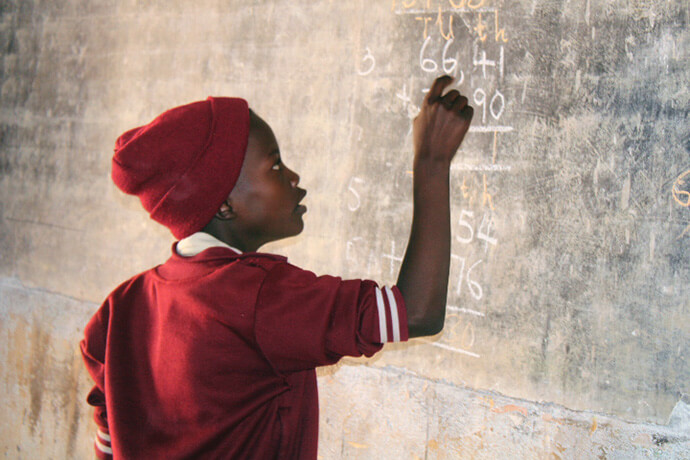
Most boys leave school to join gold panning by the age of 15, while girls are often coerced into early marriages. This pattern is creating a community with limited educational advancement.
“We are working to change mindsets about the value of education, and establishing a low-cost boarding school is one of the key strategies,” he said.
Fungai Chimuti, a headmaster at Dindi Primary School, expressed concern for the youngest learners. In addition to the children walking long distances to attend class, he noted that many parents in the area work as artisanal miners or vendors, often living far from their homes.
“This leaves children in the care of grandparents or, in some cases, entirely on their own. With minimal guidance, they are vulnerable to poor decision-making, which leads to high absenteeism,” he said.
How to help
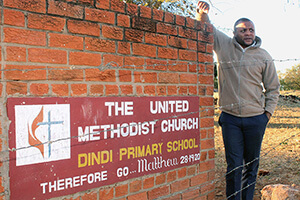
For more information about Dindi Mission and to help support its program and ministries, email Pastor Christopher Ngoni Muponda at [email protected].
Chimuti endorsed the low-cost boarding school initiative as “a step in the right direction.”
Beaulah Tondo, a 15-year-old Form 2 learner aspiring to be a teacher, is among the students who had to commute long distances to school. Living in the Dewe area, she used to wake up at 3 a.m. to catch public transport that cost $5 a day in order to get to school by 6 a.m.
“There is no secondary school where I live, and Dindi is the only option,” she said.
Now settled at the Dindi boarding facility, Tondo is thriving.
“I’m so happy to be close to the classroom. We receive good mentorship. Our matron, who is also a trained teacher, helps us with our studies at night. My academic performance has improved,” she said.
Like Tondo, Loiswitter Nyatsone had to rely on public transport, spending $4 a day to get to class from Kanzire, some 24 kilometers away.
“It was not sustainable,” said Nyatsone, a 17-year-old Form 4 learner. However, she was determined to stay in school.
“I have seen too many girls drop out of school and fall into early pregnancies, prostitution or are even forced into early and polygamous marriages,” she said.
Now living at the Dindi boarding facility, her outlook has transformed, and she aspires to be a nurse.
“I have time to study and worship God. We feel safe and supported. The matron teaches us life skills. We are growing in more than just academics,” she said.
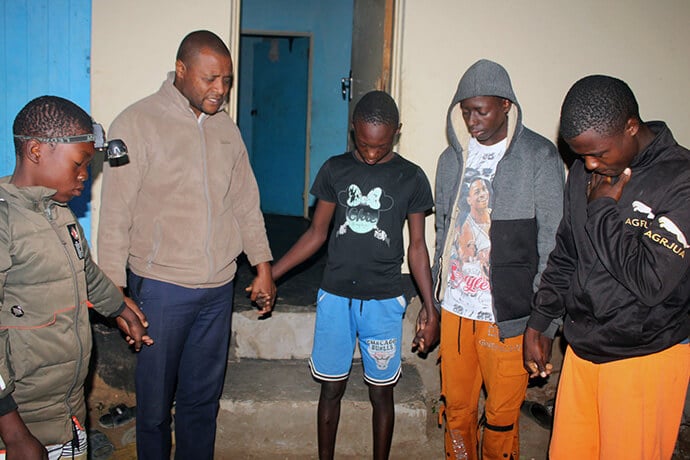
Tatenda Kadungure, the matron and textile technology and design teacher at Dindi Secondary School, has witnessed a transformation among her students.
She explained that traveling to and from school used to exhaust them, and when they got home, there were household chores waiting, leaving no time to rest or study.
“Now that they live here, they can fully focus on their education,” Kadungure said. “Their personalities have blossomed through attending church services. They present themselves well and have become true pioneers of this boarding program.”
Seventeen-year-old Newton Hunduza, an aspiring pharmacist and Form 3 learner, called the boarding school a “golden opportunity.”
“I worked hard, and now I am the top student in my stream. Education is very important, and (one) should not let any opportunity go to waste,” he said.
Hunduza noted one ongoing challenge.
“We bring our own food supplies, so I return home every Friday to restock. That is something I hope can be improved in the future,” he said.
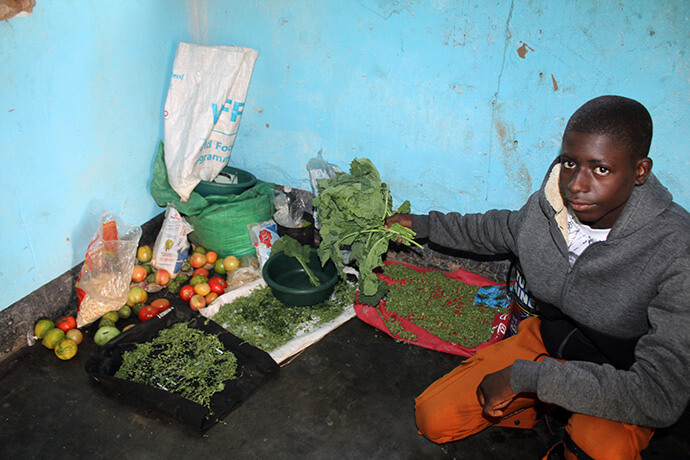
Nyatsone said that students are also appealing for better ablution facilities, clean water, bedding, electricity and the full setup of a standard boarding school.
“Otherwise, this is a great place to learn,” she said.
Seventeen-year-old Lloyd Sandaramu, a Form 5 learner from Uzumba, is one of the pioneers of Advanced Level studies at Dindi High School.
“I am like a big brother here, helping others with their studies. Back when I was commuting, I could not participate in sports. But now, I join in freely,” he said.
Sandaramu credits the school’s spiritual and emotional support systems.
“We attend church services, which helps shape our character. We also receive counseling when needed, and the pastors regularly check in on us and pray together,” he said.
Pastor Christopher Ngoni Muponda, the school chaplain at Dindi Mission, shared how spiritual development has become a central part of students’ lives.
“We hold midweek services on Wednesdays for primary learners and Fridays for high school students. It is a valuable opportunity for spiritual growth, and I have witnessed notable improvement in behavior both at school and in the community,” he said.
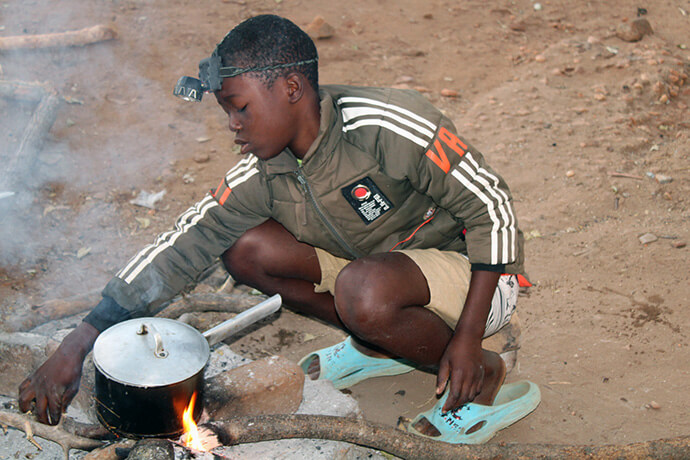
Sandaramu said that as a Christian school, Dindi recognizes the difficulties parents face when it comes to payment of school fees.
“They allow us to pay in manageable installments,” he said.
Unfortunately, not every Dindi student can afford the boarding school fees.
Form 4 student Biyasitegi Katsa spoke with quiet frustration about the strain of commuting long distances to school: “I really want to be at boarding school, but unfortunately, my parents cannot afford $10 per month.”
He expressed admiration for his peers living at the boarding facility. “They are able to study after lessons and begin each day refreshed,” he said. “I wish I had that chance, too.”
Sister Belinda Mashoko, the sister-in-charge at Dindi Clinic, reflected on the dangers students faced before the establishment of the low-cost boarding school.
“Children used to rent accommodation behind shops, which exposed them to early child marriages, with some getting married as young as 14, and drug abuse. The environment was not suitable for learners, and this gave the school a negative reputation,” she said. “The new set-up has provided protection and reduced misbehavior.”
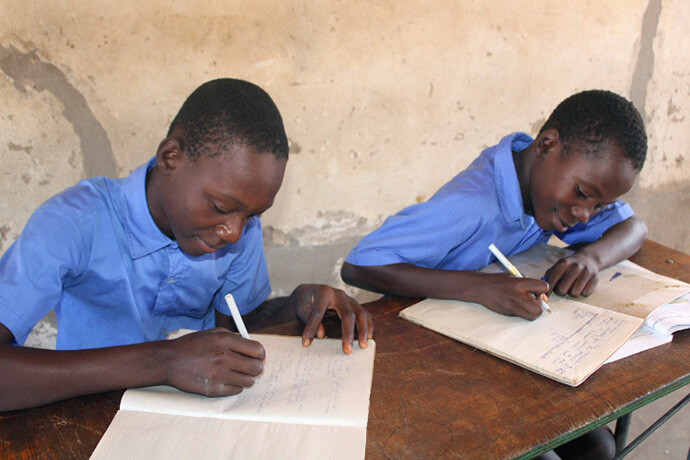
Village Head Trymore Chipwepwe expressed deep concern over the hardships faced by students traveling long distances to Dindi.
“This year, we tragically lost a learner who attempted to cross the flooded Nyamakamba River. He was swept away and drowned,” he said. “If more students had access to the boarding facilities, such tragedies could be avoided. That is why, as a local community, we fully support the boarding school as a necessary solution.”
Chipwepwe said the community is actively contributing to its development by providing locally available materials like bricks, pit and river sand, concrete stones and water for any construction taking place.
Clifford Kachidza, councillor for Ward 4 in Mwanza, spoke candidly about the socioeconomic challenges facing the district. “There is no industry in this district. It is largely a mining area. Farming has been weakened by low rainfall and mineral-heavy soils. The vision is ‘Vaka Dindi,’which means ‘Develop Dindi.’”
Subscribe to our
e-newsletter
The mission school is the only such boarding facility in the entire Pfungwe District, so Kachidza believes that with enhanced infrastructure, the school could attract students from far beyond the ward.
“That would not only develop the community but also reflect positively on the church, our district and the nation,” he said.
Despite its positive impact, Never Pikisai, chairman of Dindi High School’s Development Committee, acknowledged the school faces serious challenges.
“There’s no electricity, so learners do not have access to computers. They also lack a science lab, which limits learning opportunities,” he said.
The mission also needs a consistent water supply, especially near the primary and secondary schools.
However, he believes the project is a turning point for an entire district.
“From long, dangerous walks to school and heartbreaking dropout rates, to the risks of early marriages, substance abuse, and poverty-driven choices, the challenges were immense,” Pikisai said.
“But through collective action from teachers and parents to pastors, builders and traditional leaders, a safer, more empowering path has been carved for the children of Pfungwe, and a new future is taking shape.”
Chingwe is a communicator for the Zimbabwe East Conference.
News media contact: Julie Dwyer at [email protected]. To read more United Methodist news, subscribe to the free UM News Digest.




